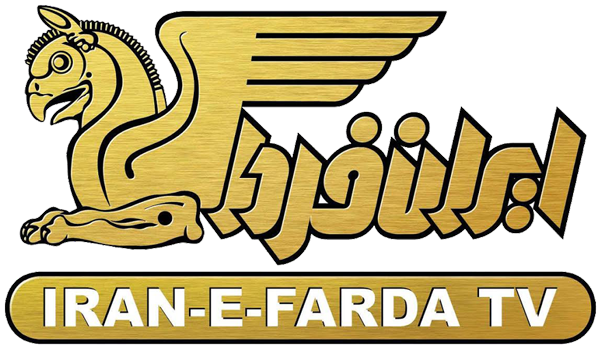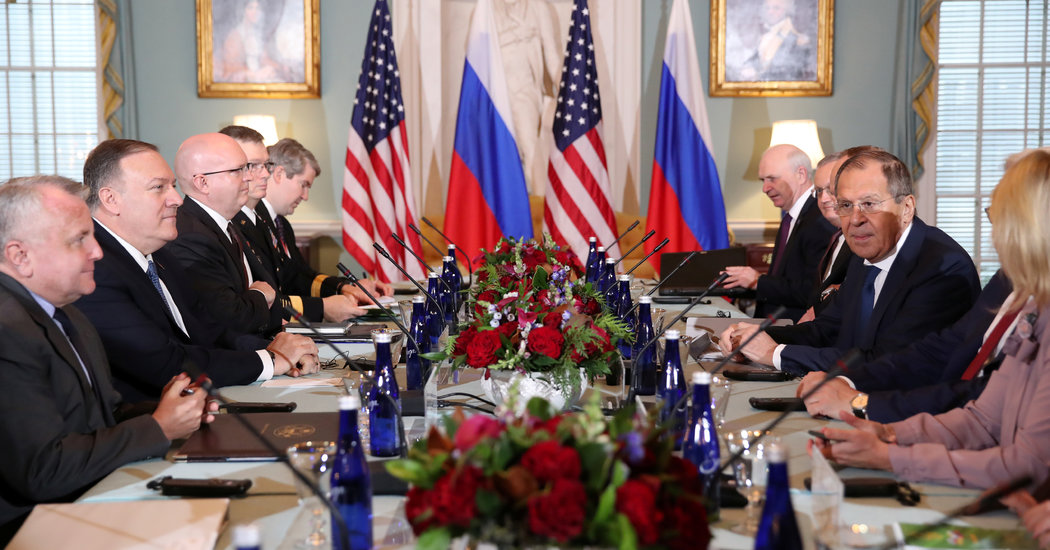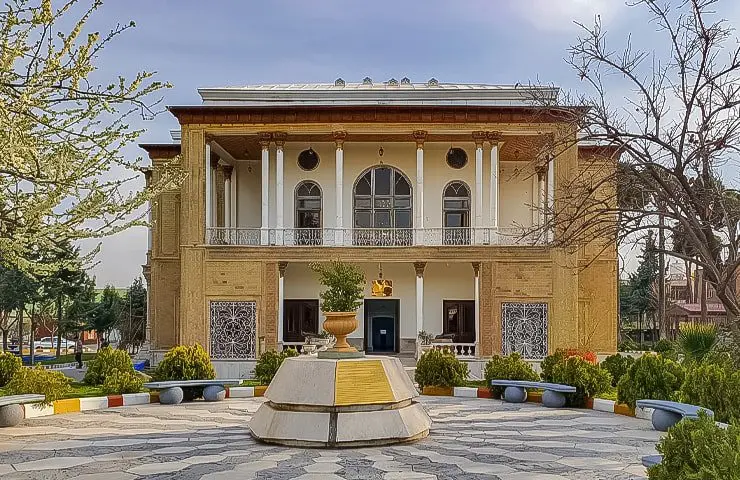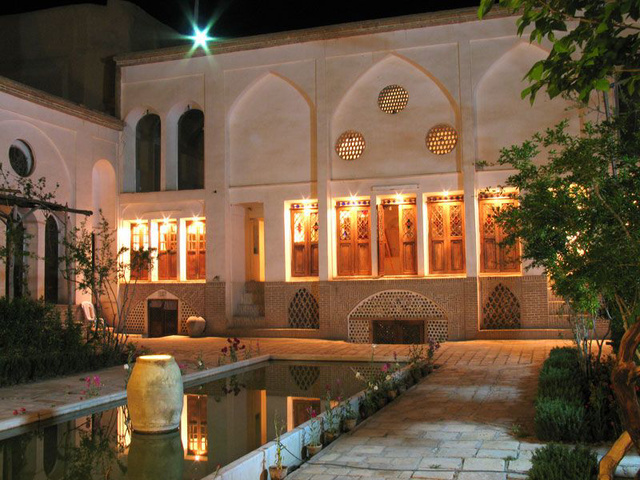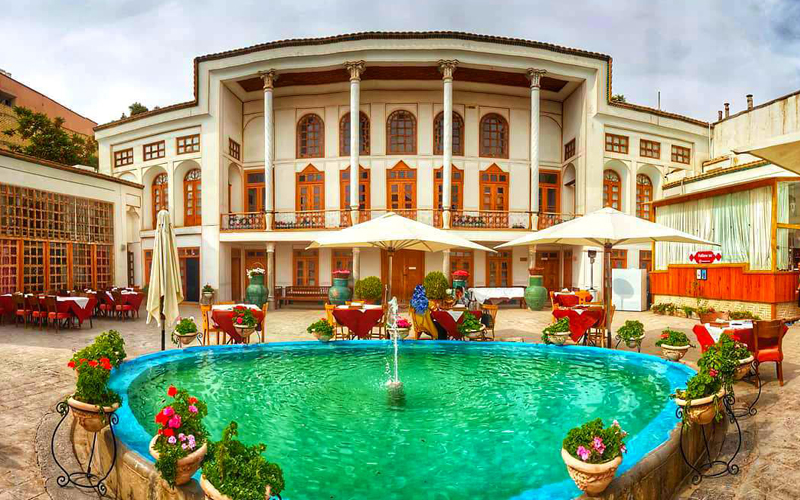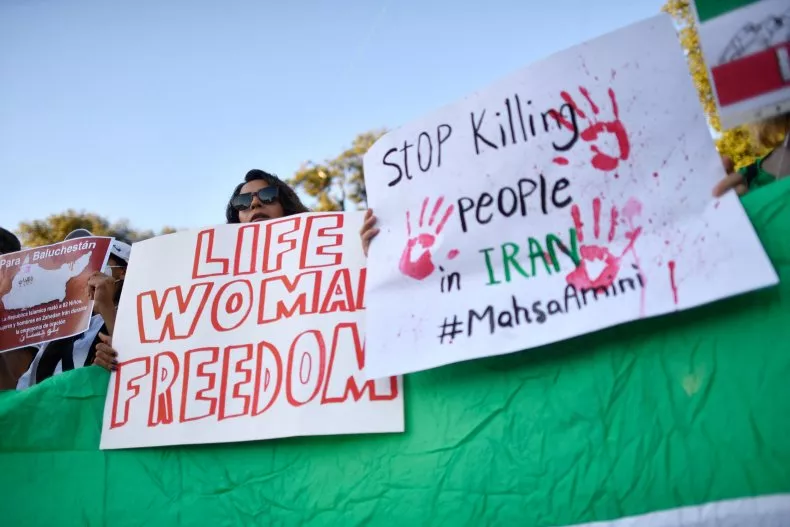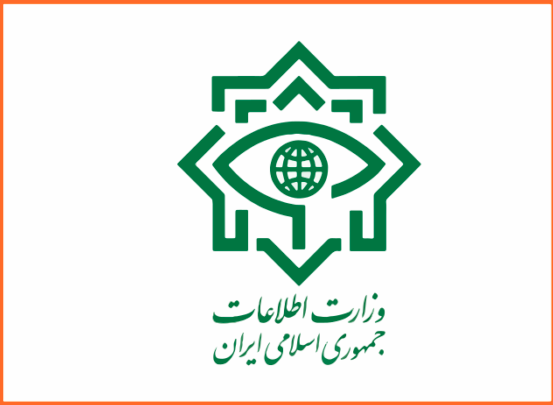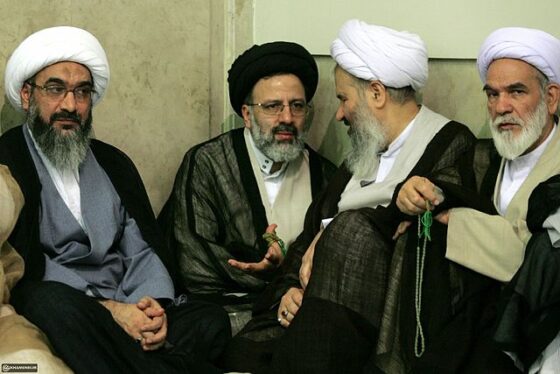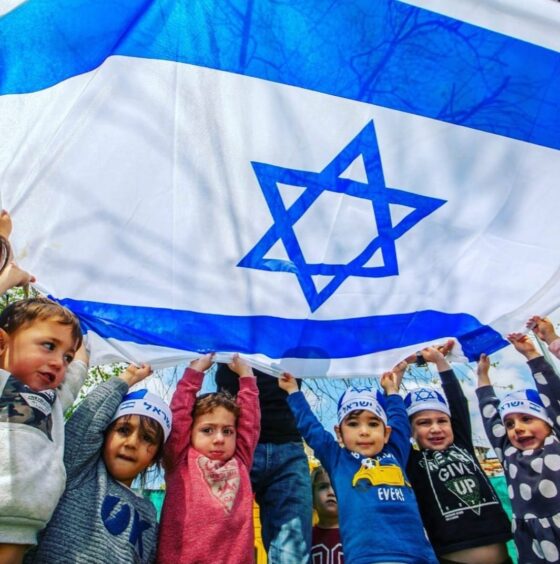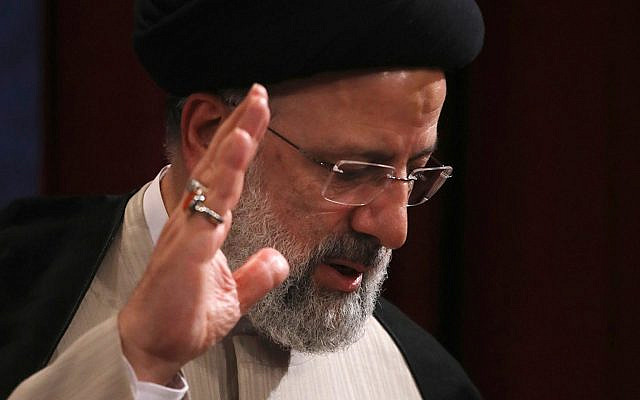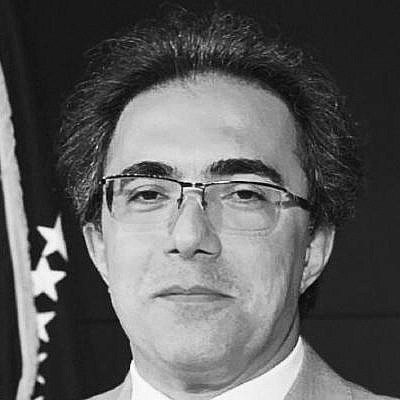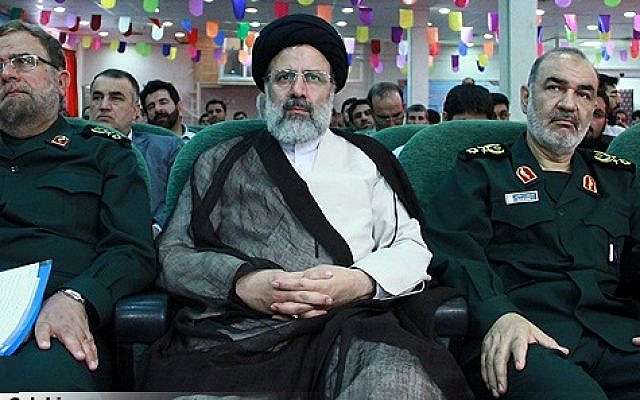WASHINGTON — Secretary of State Mike Pompeo warned Moscow not to interfere in American elections while meeting on Tuesday with Sergey V. Lavrov, Russia’s foreign minister. But Mr. Lavrov denounced accusations of election interference and said the Trump administration still had not unveiled proof of nefarious Russian activity.
And after the White House issued a statement that President Trump had also warned against election meddling, Mr. Lavrov further complicated the picture by seeming to contradict that assertion.
At an evening news conference at the Russian Embassy, American reporters asked Mr. Lavrov twice whether Mr. Trump had warned Russia not to interfere in American elections, citing the official White House description of their meeting in the Oval Office.
Mr. Lavrov suggested that Mr. Trump had not delivered such a warning — although the foreign minister also contradicted himself in his two responses. In his first reply, he said the two had “not discussed elections.” In his second reply, he said he had raised with Mr. Trump what Mr. Pompeo had said at an earlier State Department news conference about election interference and his own public rebuttal to Mr. Pompeo.
The confusion and contradictions have become typical for discussions of Russia’s well-documented 2016 election interference, and it was not the first time American and Russian accounts of conversations had differed.
Standing next to Mr. Lavrov at the news conference at the State Department, Mr. Pompeo said he had reiterated the American government’s disapproval of Russia’s interference efforts.
“On the question of interference in our domestic affairs, I was clear it’s unacceptable, and I made our expectations of Russia clear,” Mr. Pompeo said.
American intelligence agencies say Russian intelligence services and the military carried out an organized interference campaign during the 2016 election and may do so again in 2020. The Justice Department indicted 12 Russian hackers last year for electronic intrusion into the Democratic National Committee and the presidential campaign of Hillary Clinton.
Mr. Trump, though, has dismissed those conclusions and has stressed in recent weeks, without presenting evidence, that he thinks Ukraine, not Russia, interfered in the 2016 election and hacked into the Democrats’ operations.
“We have highlighted once again that all speculations about our alleged interference in domestic processes in the United States are baseless,” Mr. Lavrov said. “There are no facts that would support that. We did not see these facts. No one has given us this proof because, simply, it does not exist.”
Asked about the recent assertions by Mr. Trump and his allies that Ukraine, a rival neighboring power of Russia, had interfered in 2016, Mr. Lavrov said: “It has nothing to do with us. That is an issue for two sovereign states.”
Officials at American intelligence agencies and Fiona Hill, a Russia expert who recently left Mr. Trump’s National Security Council, have said the idea that Ukraine organized interference in the 2016 election was part of a disinformation campaign started by Russia in early 2017.
Republican lawmakers have embraced the conspiracy theory about Ukrainian interference to defend Mr. Trump in the impeachment inquiry, which is being led by House Democrats and centers on Ukraine policy and political favors. Mr. Pompeo himself, a stalwart Trump ally, has said in recent weeks that the United States should look into potential interference by Ukraine.
But on Tuesday, Mr. Pompeo emphasized an earlier position he had taken, when he was the C.I.A. director: that it was Russia that had run an interference campaign in 2016. “We don’t think there’s any mistake about what really transpired there,” he said.
Andrew S. Weiss, a Russia and Ukraine expert who is the vice president for studies at the Carnegie Endowment for International Peace, said Mr. Lavrov’s visit was most interesting because it happened soon after the foreign minister came from a meeting among several nations in Paris, including Russia but not the United States, to discuss the military conflict between Russia and Ukraine.
“The optics couldn’t be any worse,” said Mr. Weiss, who has held several government national security posts.
“The U.S.-Ukraine relationship has basically imploded” amid the impeachment storm in Washington and questions about Mr. Trump’s commitment to the country’s security, he said. “The Russians surely arranged the Lavrov visit to capitalize on all of this and to send a message to the Ukrainians that they’re basically on their own now and need to cut the best deal they can since the U.S. backstop is largely inoperative.”
Mr. Pompeo and Mr. Lavrov also discussed arms control and a potential extension of the Obama-era New Start treaty, which limits the number of nuclear weapons deployed by the two nations. Mr. Trump has criticized conditions of the treaty, which expires in February 2021. Last week, President Vladimir V. Putin of Russia offered to extend it with no preconditions, and Mr. Lavrov said on Tuesday that Moscow was ready to act on that.
But Mr. Pompeo sounded cool to the idea, stressing the administration position that the United States would agree to a new treaty only if China was part of it. The White House said Mr. Trump delivered the same message. Chinese officials have balked at any such suggestion, since China’s nuclear arsenal is a small fraction of the size of those of the United States and Russia.
If the United States and Russia do successfully negotiate an extension of the nuclear treaty, Mr. Trump would be able to advertise a significant diplomatic win while campaigning for re-election in 2020.
Mr. Pompeo said the two sides spoke about sanctions enforcement on North Korea, which has recently threatened to resume testing of nuclear weapons and long-range ballistic missiles. Mr. Lavrov said he hoped that Washington and Pyongyang would restart diplomacy. He added that dialogue must be based on “reciprocal steps,” saying, “You cannot demand that North Korea do everything.”
Since the start of his presidency in early 2017, Mr. Trump has been dogged by accusations that his public affection for Mr. Putin and efforts to create warmer ties between the two nations undermine the national security interests of the United States. American intelligence agencies agree that Russia interfered in the 2016 presidential election, a conclusion backed up by the investigation by Robert S. Mueller III, the special counsel, even though he did not find a conspiracy between members of the Trump campaign and Russian officials.
The Justice Department inspector general released a report on Monday saying the F.B.I. had sufficient reason to open an investigation in 2016 into links between Russia and Trump campaign aides — a precursor to the Mueller investigation.
In the long, labyrinthine narrative of Mr. Trump and Russia, Mr. Lavrov’s last visit to the White House, in May 2017, was a signature moment and was scrutinized in the Mueller investigation. That visit occurred on May 10, the day after Mr. Trump fired James B. Comey, the F.B.I. director who was overseeing the bureau’s inquiry into Russia and the Trump campaign. After firing Mr. Comey, Mr. Trump told Mr. Lavrov and Sergey I. Kislyak, the Russian ambassador to the United States at the time: “I faced great pressure because of Russia. That’s taken off.”
In that same meeting, Mr. Trump revealed classified information that undermined an Israeli counterterrorism operation in the Middle East and angered Israeli officials.
